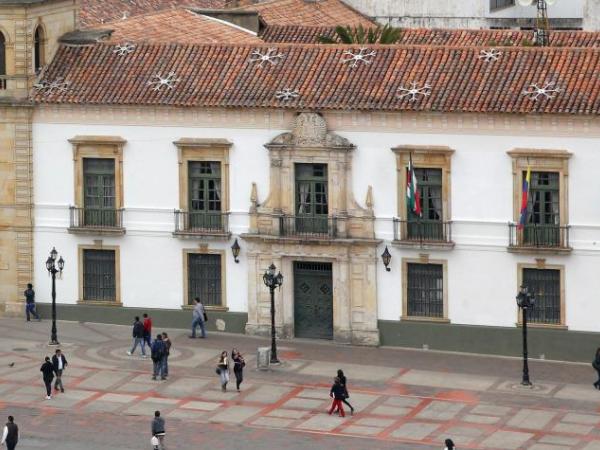After the approval in the Senate of the Comprehensive and Progressive Treaty for Trans-Pacific Partnership (CPTPP, better known as TPP11), all that remains is for the Government of President Gabriel Boric to formalize the agreement. However, this will not happen until the so-called side letters or bilateral letters with other countries of the trade agreement are resolved.
The Minister of Foreign Affairs, Antonia Urrejola, warned that the ratification of the treaty could last “years”, which caused annoyance in some sectors and in the face of which the chancellor recognized that “the President’s decision to wait for progress has been widely criticized of the side letters”.
All this, in the midst of the division between the two government coalitions against the TPP11. Let us remember that while I Approve Dignity (AD) has spoken out against the treaty, Democratic Socialism (SD) is divided in its support for the ratification of the agreement and the great point of contention is the conflict resolution mechanism.
You may also like:
One of those who reacted to the Executive’s decision to postpone the enactment of the TPP11 was former Foreign Minister Heraldo Muñoz (PPD), who maintained that although “we do not know the content of the side letters to the members of the treaty, we suppose that they were requests that Chile be exempted from the application of the investor-State dispute resolution mechanism contemplated in chapter 9, section B of the CPTPP”.
Probably, said the former head of Foreign Affairs of the government of Michelle Bachelet, “not all the letters will be the same, depending on the situation with each country.” But the problem, according to Muñoz, “is that the countries of the bloc have bilateral trade or investment protection agreements with Chile, most of which already contemplate dispute settlement mechanisms almost identical to those of the multilateral treaty, for which the Investors from those countries will be able to resort to such existing mechanisms, despite not having, hypothetically, the option of the CPTPP”.
“It seems reasonable to me that the government wants to wait for responses to the side letters to proceed with the ratification and deposit of the treaty, an exclusive power of the President. But we assume that we are talking about a reasonable period of time so as not to delay,” the diplomat said.
Heraldo Muñoz stated that the question is whether to wait until all the answers are received or just a majority. In that sense, he remarked that New Zealand only obtained five positive letters out of ten to its request to exempt itself from the same mechanism. “Will the government’s criterion be to receive a certain number of positive responses to ratify? We don’t know, because the issue of side letters has been handled with a lot of opacity,” he commented.
Ignacio Walker: “Chile cannot continue to be left behind”
For the former head of Foreign Affairs of the government of Ricardo Lagos, Ignacio Walker (DC), it is “very strange” that after four years of processing in both houses of Congress the Government “takes additional time” to process the side letters which —in his opinion— are “absolutely extemporaneous”.
The former DC senator insisted that the discussion “should be negotiated within the process and not once it expires” and stated that “we are facing a completely stagnant economy.” Then, pointing to the government coalition —I Approve Dignity—, he questioned the Executive’s reasons for “buying time.”
For former Foreign Minister Ignacio Walker, I Approve Dignity “is marked by an ideological prejudice,” therefore, “what prevents this from advancing faster is the prejudice that exists in the Communist Party and in the Broad Front.”
“I call on President Boric to make use of his powers and promulgate this agreement as soon as possible, because we are lagging behind,” the former deputy also told La Moneda, arguing that “there is a lag on the part of Chile, which used to be forefront in this matter.
“I hope that the President promulgates this treaty as soon as possible, because we have already taken four years. Chile cannot continue to be left behind, at a time when there is a very complex economic situation,” he concluded.
José Miguel Insulza: “Let’s not make up the story now that the President has the last word”
Appearing very happy with the approval of the treaty in the Upper House, the former chancellor of the government of Eduardo Frei Ruiz-Tagle, the current senator for Arica and Parinacota, José Miguel Insulza (PS), also referred to the recently ratified TPP11 and the position of the government.
“Chile has grown a lot towards Asia Pacific and having rejected this treaty would have been very damaging,” Senator Insulza began by pointing out, recalling that “the last time a treaty was not deposited is the one ratified by Congress on human rights , prior to September 11, and it was Pinochet who did not deposit it”.
Therefore, “we cannot do something similar today, let’s not make up the story now that the President has the last word,” warned the socialist legislator.
“This advance is important for me, I have always said that it is a good treaty, it unites American, Oceania and Asia Pacific nations, but a fierce campaign was launched a few years ago, in fact, many countries were made noisy by the clauses that the United States was entering into this treaty. When Trump came to power, with tougher language, many became frightened, and in that climate in Chile a campaign of No to TPP 12 arose,” added Insulza.
The senator indicated that “Trump decided that he would not be in this treaty some time later, therefore it became TPP 11, between countries with medium-sized economies, which do not create any problem for Chile, but for some reason they continued to speak against the treaty, perhaps for political or ideological reasons, shouting that this treaty was detrimental to Chile, that we could not industrialize, that seeds, that copper or sovereignty”.
With the passage of time, and returning to the present moment, in the opinion of the former head of Foreign Affairs, “this ended up having repercussions on the Government of President Boric, who could have withdrawn the treaty from Congress, but did not do so, clearly understanding that, being the President of all Chileans, he began to think that these things were useful and necessary for the country and all the stories that were told about this, are not just fake news, but that, in cases such as the original seeds, these are excluded from international trade.
The PS parliamentarian concluded that “in relation to the dispute resolution system, Chile has lost only once in this, but for some reason someone in this country thinks that when something is going wrong, it must be extended as long as possible. I spoke with senators from Approve Dignity that we would vote for it later and not give a can, because the votes were there to approve it, however, they delayed it as much as they could, “he concluded.
Alfredo Moreno: “The longer we wait, the more benefits we lose”
Alfredo Moreno (independent), Minister of Foreign Affairs under the first government of President Sebastián Piñera, stated that the treaty “has many benefits for Chile” and therefore “the longer we wait, the more benefits we lose and it is expensive for us to time elapsed without being in this treaty – the third largest in the world”.
The also former head of Social Development criticized that the content of the side letters is not of a public nature and called on the Government to clarify what they are about, beyond the issue of dispute resolution between investors and the State. Although he acknowledged that Chile has had a very positive experience in international commercial courts and has only lost in one case “not precisely against a large corporation”, he assured that it is a discussion that can take place a posteriori.
“I think that the shorter the waiting period, the better for the country,” Moreno declared, stressing that Chile already has trade agreements with almost all the countries of the treaty and therefore the practical effect of the side letters would be “null.” .
“Congress has already said what it thinks for the most part and this has been ratified by many previous administrations,” said the former minister, reviewing that “there are many years of negotiations to be able to harmonize the opinions of many countries and therefore it would be a shame lose it or delay your benefits.
In the opinion of the former foreign minister, delaying it for a long time “would be incomprehensible, since throughout history the country has said —both in Parliament and in previous administrations— that it is what seems convenient to it.”
“If the objection is the dispute settlement mechanism. And the problem is whether you want a permanent court versus arbitration. That is something that can always be discussed and can be modified in the future and the changes that the countries accept”, refuted Alfredo Moreno.
And, reiterating that today these bilateral letters “would not have a practical effect, if the content is what they are said to have,” he insisted that it would be good if they were made public in their entirety.
Roberto Ampuero: “Side letters are an own goal from the President”
The former foreign minister of Sebastián Piñera’s government, Roberto Ampuero, also referred to the issue, pointing to the fracture in the ruling party and affirming that the strategy of bilateral letters proposed by La Moneda is “an own goal from half court by President Gabriel Boric “.
“If he approves TPP11, he loses to his radical base; if he rejects, he loses to the country; if he continues to delay to get along with everyone, he loses to his radical base, the country and the partners of TPP11”, commented the former head of the Minrel and militant of Evópoli, through Twitter.
Government spokeswoman: “Now it’s up to the Senate to respect the President’s decision”
The Minister of the General Secretariat of Government (Segegob), Camila Vallejo, responded to criticism of the Executive’s strategy, assuring that just as the Government respected and has respected the decision of the Senate, “now it is up to the Senate to respect the decision of the President”.
“This is how democracies operate, this is how the division of powers from the State operates, each one with its powers and tools and constitutional attributions,” said the spokeswoman at a press point from La Moneda.
Regarding the time that the management of these “credential letters” could take, Minister Vallejo acknowledged that “that depends a lot, because each country has its time, its own conversations.”
“But in our country we have had cases for more than two years where they are expected. We hope it doesn’t have to be that long,” he said.








